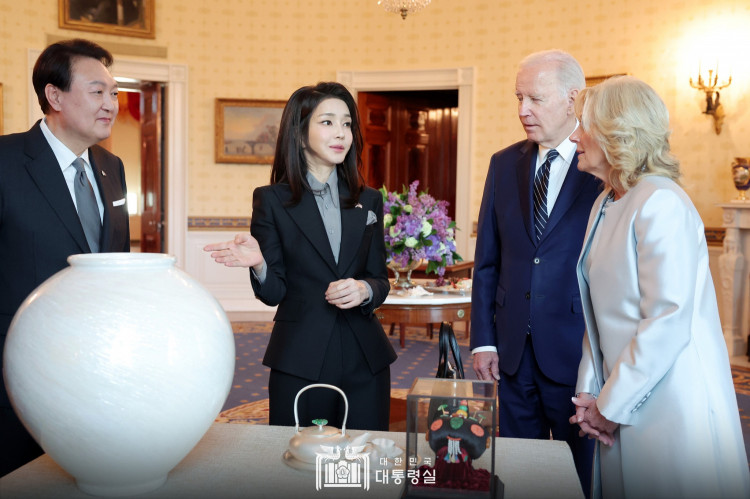The United States pledged on Wednesday to provide South Korea with greater access to its nuclear planning in case of a conflict with North Korea, in response to concerns over Pyongyang's expanding missile and bomb arsenal.
The commitment, which included a reaffirmation by Seoul not to develop its own nuclear weapons, followed White House discussions between US President Joe Biden and South Korean leader Yoon Suk Yeol. The talks addressed topics such as North Korea, semiconductor chips, trade, and the Ukraine conflict.
Yoon announced at a joint press conference that he and Biden had agreed on measures to enhance South Korea's defenses in light of the North Korean threat.
"Our two countries have agreed to immediate bilateral presidential consultations in the event of North Korea's nuclear attack and promised to respond swiftly, overwhelmingly and decisively using the full force of the alliance, including the United States nuclear weapons," Yoon stated.
Biden once again reiterated the US offer for diplomatic negotiations with North Korea concerning its nuclear and missile programs, an offer that has been disregarded by North Korean leader Kim Jong Un.
The North Korean mission to the United Nations did not immediately respond to a request for comment.
As part of the new "Washington Declaration," the US will grant South Korea in-depth insights and input into US contingency planning to deter and respond to any nuclear incidents in the region through a US-ROK Nuclear Consultative Group, according to US officials.
In a display of force, Washington will deploy a ballistic-missile submarine to South Korea, marking the first such deployment since the 1980s. However, Biden clarified that no US nuclear weapons would be stationed on South Korean soil.
"I have absolute authority as commander in chief and the sole authority to use a nuclear weapon, but ... what the declaration means is that we're going to make every effort to consult with our allies when it's appropriate, if any action is so called for," Biden said.
The agreed measures may not be enough to change the trajectory of North Korea's nuclear program or to quell domestic debates about South Korea's nuclear future. However, by involving Seoul in US nuclear deliberations, Yoon can argue that Washington is taking South Korea's concerns seriously.
Duyeon Kim, an analyst with the Center for a New American Security, described the Washington Declaration as "a big win for the alliance and especially for South Korea."
"For the first time, the allies are discussing nuclear deterrence, which Seoul has not been able to discuss with Washington until now," she said.
In addition to agreements on cybersecurity, electric vehicles and batteries, quantum technology, foreign assistance, and economic investment, the summit covered tensions between China and Taiwan and Chinese military activities in the South China Sea.
In a joint statement, the two presidents emphasized the importance of maintaining stability in the Taiwan Strait and strongly opposed "any unilateral attempts to change the status quo in the Indo-Pacific."
The focus of the meeting remained on North Korea, with US officials emphasizing that no US nuclear weapons would return to the peninsula and South Korea would continue not to have control over the US nuclear arsenal.






